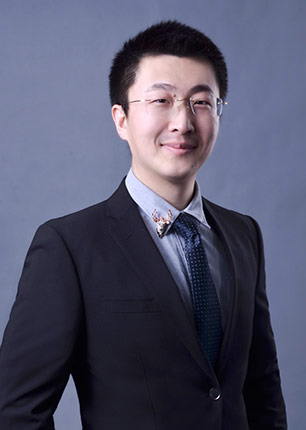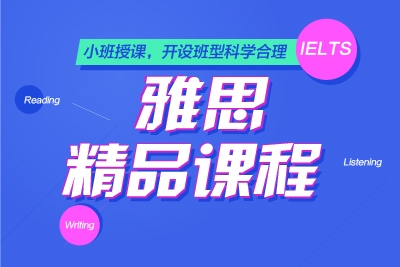雅思閱讀 | 判斷題易錯(cuò)題解析
發(fā)布時(shí)間:2020-01-15 13:44:46 關(guān)注量:17792次
雅思閱讀 | 判斷題易錯(cuò)題解析
判斷題被公認(rèn)為雅思閱讀的基礎(chǔ)題型,但基礎(chǔ)題型是否代表其難度就一定簡(jiǎn)單呢,?
這里的“基礎(chǔ)性”其實(shí)指的是該題型考察的頻繁性和廣泛性,。
在一場(chǎng)考試中出現(xiàn)兩篇文章考察判斷題也不足為奇。而同樣的題型,,在第一篇和第三篇的難度是截然不同的,。
因此,學(xué)生在備考雅思閱讀時(shí),,應(yīng)該對(duì)判斷題加以重視,,而不要因?yàn)槠鋵儆诨A(chǔ)題就對(duì)其放松警惕。
本文摘取部分來(lái)自劍13和劍14的部分易錯(cuò)判斷題,,通過(guò)對(duì)每一題的解析,,剖析判斷題的難點(diǎn)和重點(diǎn)。
C13T1P1 Case Study: TourismNew Zealand website
The website was set up toallow both individuals and travel organisations to create itineraries andtravel packages to suit their own needs and interests.
題目:The websitewww.newzealand.com aimed to provide ready-made itineraries and packages fortravel companies and individual tourists.
答案:FALSE
此題的錯(cuò)誤點(diǎn)是在ready-made, 這個(gè)單詞的意思是“現(xiàn)成的,,預(yù)先做好的”,。但根據(jù)原文,網(wǎng)站是讓個(gè)人和公司自己制定行程,。此題除了再次表明詞匯量的重要性外,,也說(shuō)明判斷題考察之細(xì)致,考生對(duì)于題干中的實(shí)詞所表達(dá)的含義要逐一核實(shí),。
C13T2P1 Bring Cinnamon toEurope
Over time, the supply ofcinnamon trees on the island became nearly exhausted, due to systematicstripping of the bark. Eventually, the Dutch began cultivating their owncinnamon trees to supplement the diminishing number of wild trees available foruse.
題目:The trees plantedby the Dutch produced larger quantities of cinnamon than the wild trees.
答案:NOT GIVEN
此題比較容易錯(cuò)選TRUE. 有的學(xué)生看到了原文中diminishingnumber of wild trees. 覺(jué)得野外的樹(shù)數(shù)量減少了,,所以產(chǎn)出的cinnamon就比種植的要少。
做判斷題一定要注意原文和題干中的描述是否一致,,以及邏輯是否成立,;
文中說(shuō)的是wild trees少,題目說(shuō)的是cinnamonquantities 少,數(shù)少能否一定推導(dǎo)出產(chǎn)出的果實(shí)就一定少,?如果不一定的話(huà),,答案就是NOT GIVEN.
C14T1P3 Motivational factorsand the hospitality industry
While it seems likely thatemployees’ reactions to their job characteristics could be affected by apredisposition to view their work environment negatively, no evidence exists tosupport this hypothesis (Spector et al.,2000).
題目:Research hasshown that staff have a tendency to dislike their workplace.
答案:NO
此題容易錯(cuò)選YES,有的同學(xué)找到了三組替換:predisposition-tendency,view… negatively-dislike, work environment-workplace 所以就非常自信的認(rèn)為是YES, 但殊不知他們忽略了題干中的主語(yǔ)和謂語(yǔ)Research hasshown that…原文的第二行后半句說(shuō)no evidence exists tosupport this hypothesis…既然沒(méi)有證據(jù),就說(shuō)明不可能有實(shí)驗(yàn)會(huì)得出這個(gè)結(jié)論,,因此答案時(shí)NO
C14T4P2 Why zoos are good
In addition to this, thereis also the education that can take place in zoos through signs, talks andpresentations which directly communicate information to visitors about theanimals they are seeing and their place in the world. This was an area wherezoos used to be lacking, but they are now increasing sophisticated in theircommunication and outreach work.
題目:Zoos have alwaysexcelled at transmitting information about animals to the public.
答案:FALSE
此題考查的點(diǎn)是很多同學(xué)都會(huì)忽略的一個(gè)單詞:always. 原文第二行的communicateinformation to visitors 替換了題干中的transmitting informationabout animals to the public. 但后文緊接著說(shuō)This was an area where zoosused to be lacking, 說(shuō)明在宣傳上動(dòng)物園并不是always做得很好,。所以是FALSE.
此題除了提醒我們判斷題考察的點(diǎn)越來(lái)越細(xì)之外,考生也要注意判斷題中出現(xiàn)表示時(shí)間的單詞或短語(yǔ),,如: as soon as,immediately, now等等;
C14T4P3
Striking, Rochman says, onlyone well-designed study failed to find the effect it was looking for, aninvestigation of mussels ingesting microscopic plastic bits. The plastic movedfrom the mussels’ stomach to their bloodstreams, scientists found, and stayedthere for weeks- but didn’t seem to stress out the shellfish.
題目:One studyexamined by Rochman was expecting to find that mussels were harmed by eatingplastic.
答案:TRUE.
此題很容易錯(cuò)選FALSE. 有的學(xué)生看到原文第一行..failed to findthe effect…, 以及最后一行… but didn’t seem to stressout the shellfish. 覺(jué)得eating plastic并沒(méi)有harm mussels 所以覺(jué)得題干應(yīng)該是錯(cuò)的,。
但他們忽略的是題干中謂語(yǔ)動(dòng)詞是was expecting tofind.. 也就是說(shuō)題干問(wèn)的是研究是不是想要發(fā)現(xiàn)eating plastic 對(duì)mussel有害,,并不是問(wèn)它的結(jié)論對(duì)不對(duì)。
根據(jù)原文第一行…fail to find the effect it was looking for, aninvestigation of mussels ingesting microscopic plastic bits.一個(gè)研究mussels吃塑料的實(shí)驗(yàn)沒(méi)有發(fā)現(xiàn)它正在尋找的影響。
那它想要找的影響是什么呢,?根據(jù)后文塑料并沒(méi)有harm mussels,,說(shuō)明這個(gè)研究確實(shí)想要發(fā)現(xiàn)eating plastic 對(duì)mussels有害,。故答案是TRUE
小結(jié):
根據(jù)對(duì)上述題目的分析,,考生在做判斷題時(shí)應(yīng)注意以下幾點(diǎn):
1.除了定位詞外的其他實(shí)詞和修飾成分,,都要一一核實(shí),不能遺漏,;
2.不能局部的找某些單詞或句子的替換,,就盲目地下結(jié)論。要對(duì)比原文和題干的邏輯關(guān)系和描述內(nèi)容是否一致,、矛盾后者兩者并無(wú)聯(lián)系;
3.注意題干中表達(dá)時(shí)間的單詞和短語(yǔ),。
本文由沈陽(yáng)雅思培訓(xùn)通途國(guó)際英語(yǔ)原創(chuàng),,轉(zhuǎn)載請(qǐng)保留鏈接: http://quwanggou.net/IELTS/yuedu/893.html













